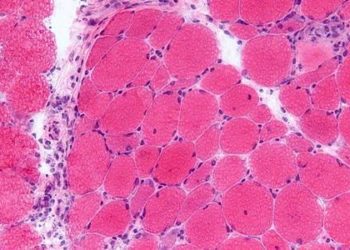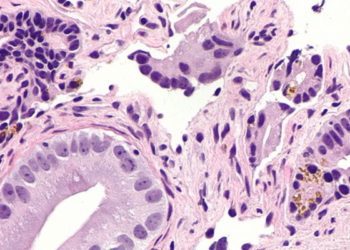AbbVie’s novel epkinly results in meaningful treatment response in patients with treatment-refractory lymphoma
- Epkinly showed an overall response rate of 82% with 62.5% of patients achieving complete response.
- 65% of patients had grade 1-2 cytokine release syndrome (CRS), though severe cases (grade 3) were rare.
The Latest
In the EPCORE NHL-1 study, a phase 1-2, open-label, single-arm, multicohort study, 128 patients with relapsed or refractory CD20+ follicular lymphoma were treated with subcutaneous Epkinly until disease progression or unacceptable toxicity. Epkinly achieved an overall response rate of 82%, with 62.5% of patients achieving complete response. In terms of safety, patients were evaluated for cytokine release syndrome (CRS), a serious side effect that occurs when the immune system becomes overly activated, leading to widespread inflammation. 65% of patients had grade 1-2 cytokine release syndrome (CRS) though severe cases (grade 3) were rare.
Physician’s Perspective
Follicular lymphoma is the most common type of indolent non-Hodgkin lymphoma, meaning a blood cell cancer that typically grows very slowly. Patients with follicular lymphoma are typically treated with anti-CD20 monoclonal antibody as first-line therapy. While many patients will have an initial response to therapy, most patients will ultimately develop progressive disease that no longer responds to currently available treatment (treatment-refractory). Therefore, therapeutics with novel mechanisms of action are needed for patients with treatment-refractory follicular lymphoma.
Molecular Target of Therapy
Epkinly (epcoritamab) is a CD3-CD20 bispecific antibody and part of a novel class of agents called T-cell engagers. Epkinly has 2 binding sites. One part of the molecule binds to a specific protein on the surface of cancer cells (i.e. CD20 on follicular lymphoma cells) while another part of the protein binds to a protein on the surface of T-cells (CD3). By bringing the T cell closer to cancer cells, the T cell then becomes activated and subsequently kills the cancer cell.
Company History
AbbVie, founded in 2013, produces several immune modulators such as Skyrizi and Humira, drugs widely used for the treatment of diseases such as psoriasis, rheumatoid arthritis, and inflammatory bowel disease. Epkinly has already been approved for the treatment of relapsed/ treatment-refractory large B-cell lymphoma, and has recently gained FDA approval for use in patients with treatment-refractory follicular lymphoma.
Further reading: https://www.thelancet.com/journals/lanhae/article/PIIS2352-3026(24)00166-2/fulltext
©2024 2 Minute Medicine, Inc. All rights reserved. No works may be reproduced without expressed written consent from 2 Minute Medicine, Inc. Inquire about licensing here. No article should be construed as medical advice and is not intended as such by the authors or by 2 Minute Medicine, Inc.







